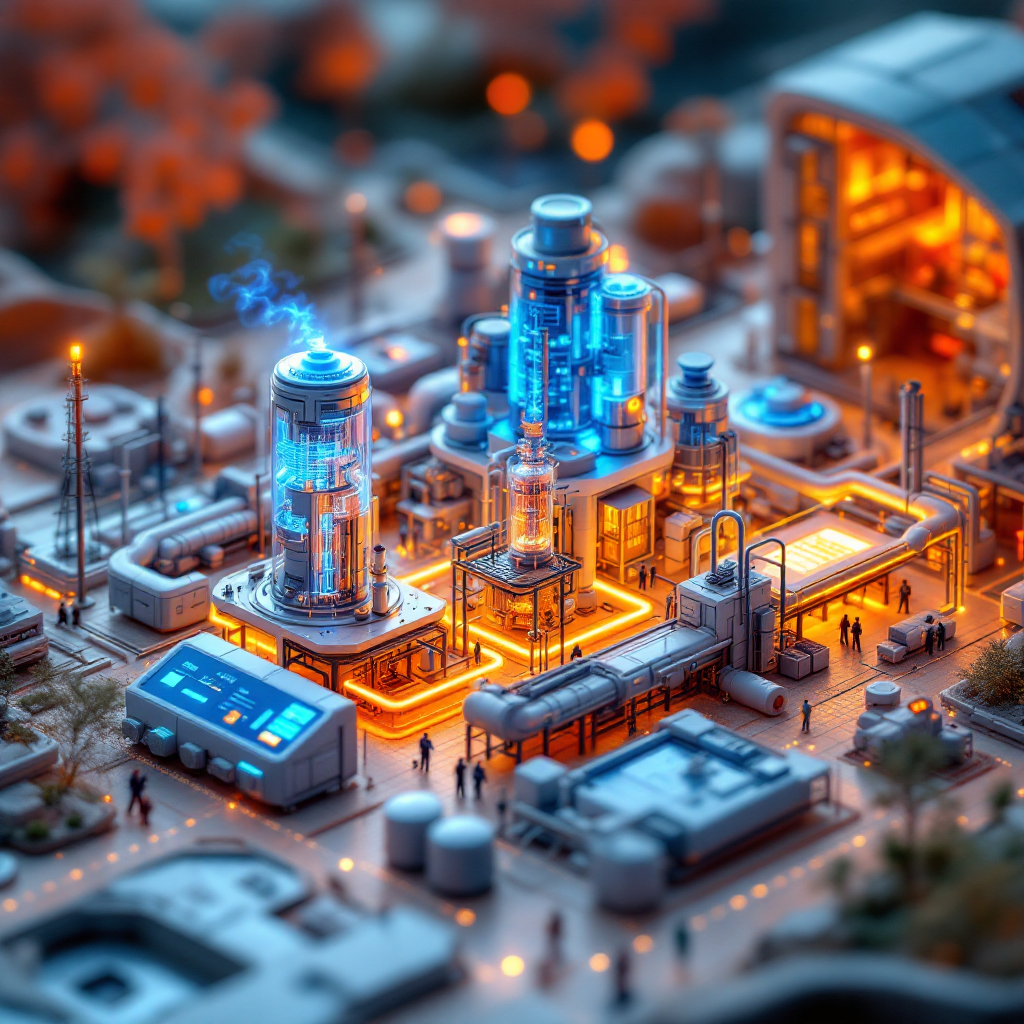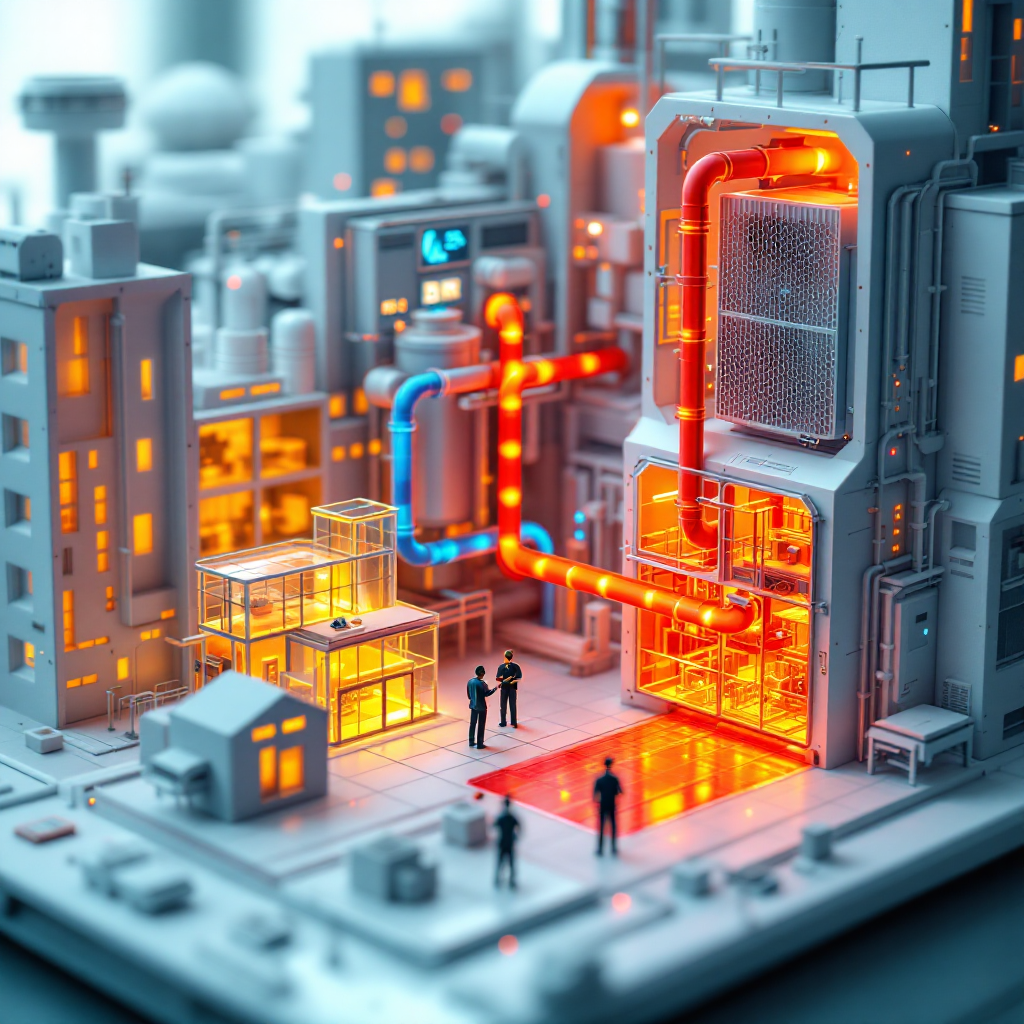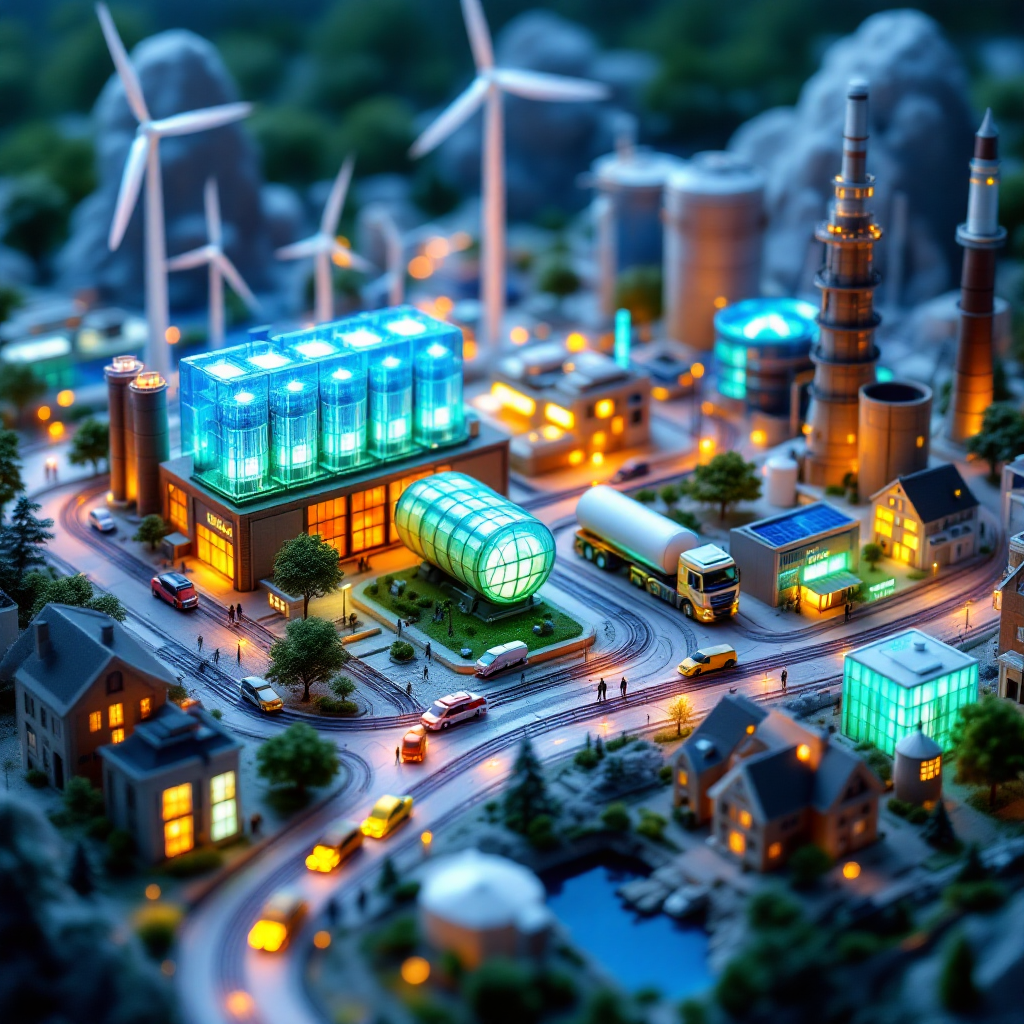The Future of Steel: Driving Sustainability with Green Innovation

Green steel, produced using innovative technologies like hydrogen-based direct reduction (H2-DRI) and electric arc furnaces (EAF) powered by renewable energy, has the potential to revolutionize the steel industry and significantly reduce its environmental impact. 🌿 By minimizing CO₂ emissions and leveraging renewable energy sources, green steel production methods can cut greenhouse gas emissions by an […]
The April 2025 Blackout on the Iberian Peninsula: Lessons for the Energy Transition

🌍 On April 28, 2025, Spain and Portugal experienced an almost nationwide blackout, affecting the entire Iberian Peninsula. The incident, triggered by an overvoltage in the Spanish transmission grid, led to a rapid loss of about 15 gigawatts of electricity in Spain, corresponding to around 60% of its supply. Official investigations identified planning errors by […]
Energy Efficiency in PtX: Key Approaches and Benefits

Power-to-X (PtX) systems are gaining traction as a promising solution for sustainable energy storage and grid balancing. However, optimizing energy efficiency is crucial for their economic viability and competitiveness. Here are some key strategies that can significantly enhance the efficiency of PtX systems: 1. 🧪 Process Intensification (PI): By integrating and enhancing reaction and separation […]
Smarter Energy Use in Industry: Flexibility as a System Service

Industrial energy consumers have a key role to play in building a more resilient and efficient energy system. By adjusting their electricity usage in response to grid conditions and market signals, they can help stabilize the power system – and reduce their own energy costs at the same time. Today, many industrial processes already have […]
Decarbonizing the Steel Industry: The Path to a Sustainable Future

The steel industry, responsible for 10% of global CO2 emissions, is a critical focus for decarbonization efforts. As a “hard-to-abate” sector, reducing the carbon footprint of steel production is essential for achieving global climate goals. However, tracking carbon emissions in the steel value chain is complex due to scattered data sources and the high cost […]
ESG Reporting Frameworks for Heavy Industry: A Comprehensive Analysis

As the demand for transparency and accountability in sustainability practices grows, Environmental, Social and Governance (ESG) reporting has become crucial for businesses in heavy industry sectors. 🏭 Key drivers for ESG reporting include: Major ESG reporting frameworks relevant to heavy industry: While implementing these frameworks, heavy industries face challenges such as complex supply chains, data […]
Avanços emocionantes estão a transformar a indústria fotovoltaica (PV)! 🌞

Inovações como as células solares em tandem e as células fotovoltaicas à base de perovskite estão a ultrapassar os limites de eficiência, oferecendo uma maior produção de energia por metro quadrado. A integração de sistemas fotovoltaicos com sistemas domésticos e de rede inteligentes permite a gestão de energia em tempo real, melhorando a estabilidade e o desempenho da rede. A gestão ativa de energia (APM) também está a emergir como uma solução poderosa para otimizar […]
Falhas de energia na Península Ibérica: Compreender as causas e as implicações

Em 28 de abril de 2025, um corte de energia afectou milhões de pessoas em Espanha, Portugal, Andorra e partes do sudoeste de França durante 18 horas. O incidente suscitou preocupações sobre a estabilidade e a fiabilidade da rede eléctrica da região, que depende fortemente de fontes de energia renováveis. A causa exacta do corte de energia ainda está a ser […]
Sistemas de recuperação de calor residual: Libertar a eficiência e a sustentabilidade

Sabia que a captação e reutilização do calor residual dos processos industriais pode aumentar significativamente a eficiência energética, reduzir as emissões de carbono e otimizar o desempenho económico? 📈 Os sistemas de recuperação de calor residual (WHR) estão a tornar-se cada vez mais cruciais na procura de práticas industriais sustentáveis. Ao aproveitar o potencial do calor perdido, as indústrias podem gerar eletricidade, pré-aquecer a combustão […]
Libertar o potencial das infra-estruturas de hidrogénio: Uma Perspetiva Global

A transição para uma economia de baixo carbono é uma prioridade global premente, e o hidrogénio é cada vez mais reconhecido como um componente crítico para alcançar este objetivo. Enquanto vetor energético versátil, o hidrogénio pode descarbonizar sectores difíceis de eletrificar, como a indústria pesada e os transportes de longo curso. A Europa e os Estados Unidos têm estado na vanguarda […]
